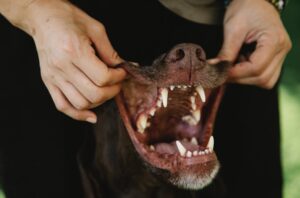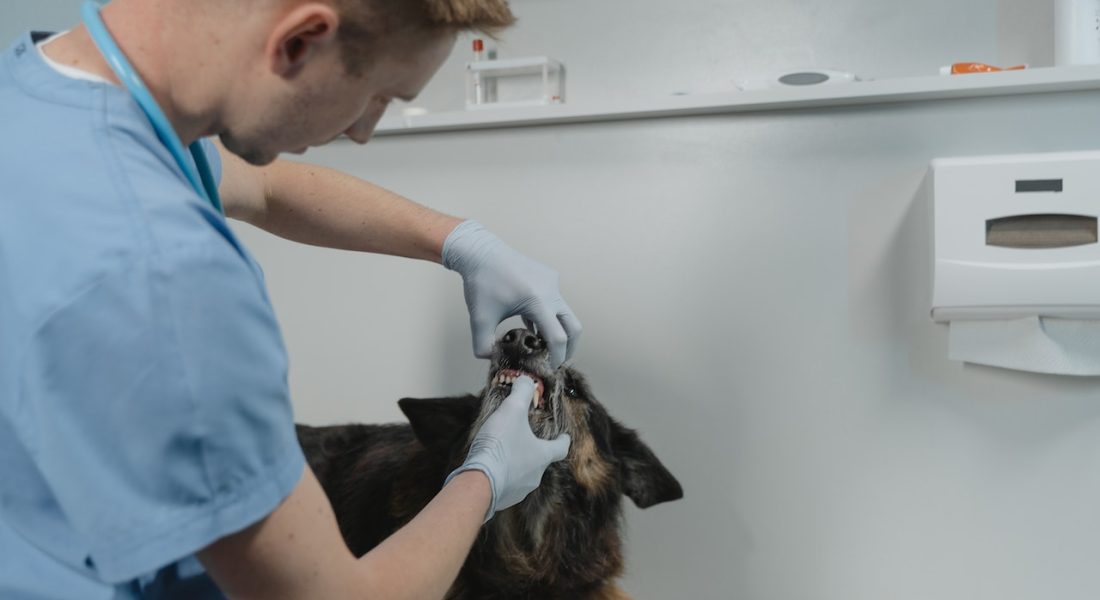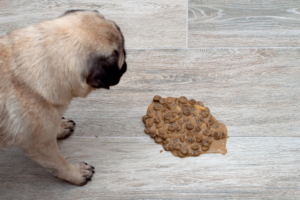As dog owners, we want to ensure our furry companions are happy and healthy. However, many of us overlook the signs of potential issues when it comes to their dental health. It’s important to remember that dogs can suffer from various dental problems, much like humans. Ignoring their teeth can lead to serious health consequences and discomfort for your beloved dog.
This article will discuss the common signs of dental issues in dogs and provide tips on preventing them.
Why do dogs experience dental pain?
Like humans, dogs can also suffer from dental problems such as tooth decay, gum disease, and tooth loss. These issues are often caused by a buildup of plaque and tartar on their teeth. If left untreated, this can lead to infections and inflammation in the gums, eventually causing more severe issues.
Aside from poor oral hygiene, other factors contributing to dog dental issues include genetics, age, and diet. Certain breeds are more prone to dental problems, especially smaller dogs with crowded teeth. Older dogs may also experience weakened teeth and gums, making them more susceptible to infections. And just like us, a poor diet high in sugar and carbohydrates can also contribute to dental issues in our canine companions.

What are the signs of dental pain in dogs?
Unlike humans, dogs can’t verbally tell us when they are experiencing dental pain. Therefore, it’s important to notice any changes in their behavior or appearance that may indicate a problem. Here are some common signs of dental issues in dogs:
- Bad breath
- Yellow or brown buildup on teeth
- Loose or missing teeth
- Difficulty eating or dropping food from their mouth
- Excessive drooling
- Swollen or bleeding gums
- Changes in behavior (e.g., aggression, decreased appetite, whimpers)
If your dog is exhibiting any of these signs, scheduling a veterinary appointment as soon as possible is important.
How to prevent dental problems in dogs?
The good news is that many dental issues in dogs can be prevented with proper care and attention. Here are some tips to help keep your dog’s teeth healthy:
- Regular brushing: Just like us, dogs need their teeth brushed regularly to remove plaque and tartar buildup. Use a toothbrush and toothpaste specifically designed for dogs to keep their teeth healthy!
- Dental treats and chews: Many dental treats and chews are available on the market that can help keep your dog’s teeth clean. Look for products with the Veterinary Oral Health Council (VOHC) seal of approval.
- Annual check-ups: Schedule yearly dental check-ups with your veterinarian to catch any potential issues early on.
- Proper diet: Choose a high-quality, balanced diet for your dog that is low in sugar and carbohydrates.
- Chew toys: Providing your dog with appropriate chew toys can also help clear buildup and keep your pups teeth clean.
Following these tips can help ensure that your dog’s oral health is in top shape. Remember, prevention is always better than treatment for our furry companions.
What is the best treatment for dogs with dental pain?
If your dog is already suffering from dental issues, the best treatment will depend on the severity of their condition. Minor issues may be treated with a professional cleaning and polishing of their teeth. However, more serious cases may require extractions or other dental procedures.
Plus, in addition to any necessary treatments, your veterinarian may also recommend specific at-home care to help maintain your dog’s dental health.
It’s important to prioritize your dog’s oral health and take action if any signs of dental pain are present. By being proactive and providing proper care, you can ensure your furry friend has a happy and healthy smile for years.
Conclusion
As responsible dog owners, we must pay attention to our dog’s dental health and take necessary steps to prevent potential issues. By understanding the common signs of dental problems in dogs and implementing proper preventive measures such as regular brushing, annual check-ups, and a balanced diet, we can ensure that our furry companions have a healthy smile for life.
And if any dental issues do arise, prompt treatment is crucial to prevent further discomfort and health complications. Also, remember to consult your veterinarian for any specific at-home care recommendations. Let’s prioritize our dog’s oral health and keep them happy and pain-free.
After all, a healthy mouth equals a happy pup, so let’s ensure our furry friends have the best dental care possible!




